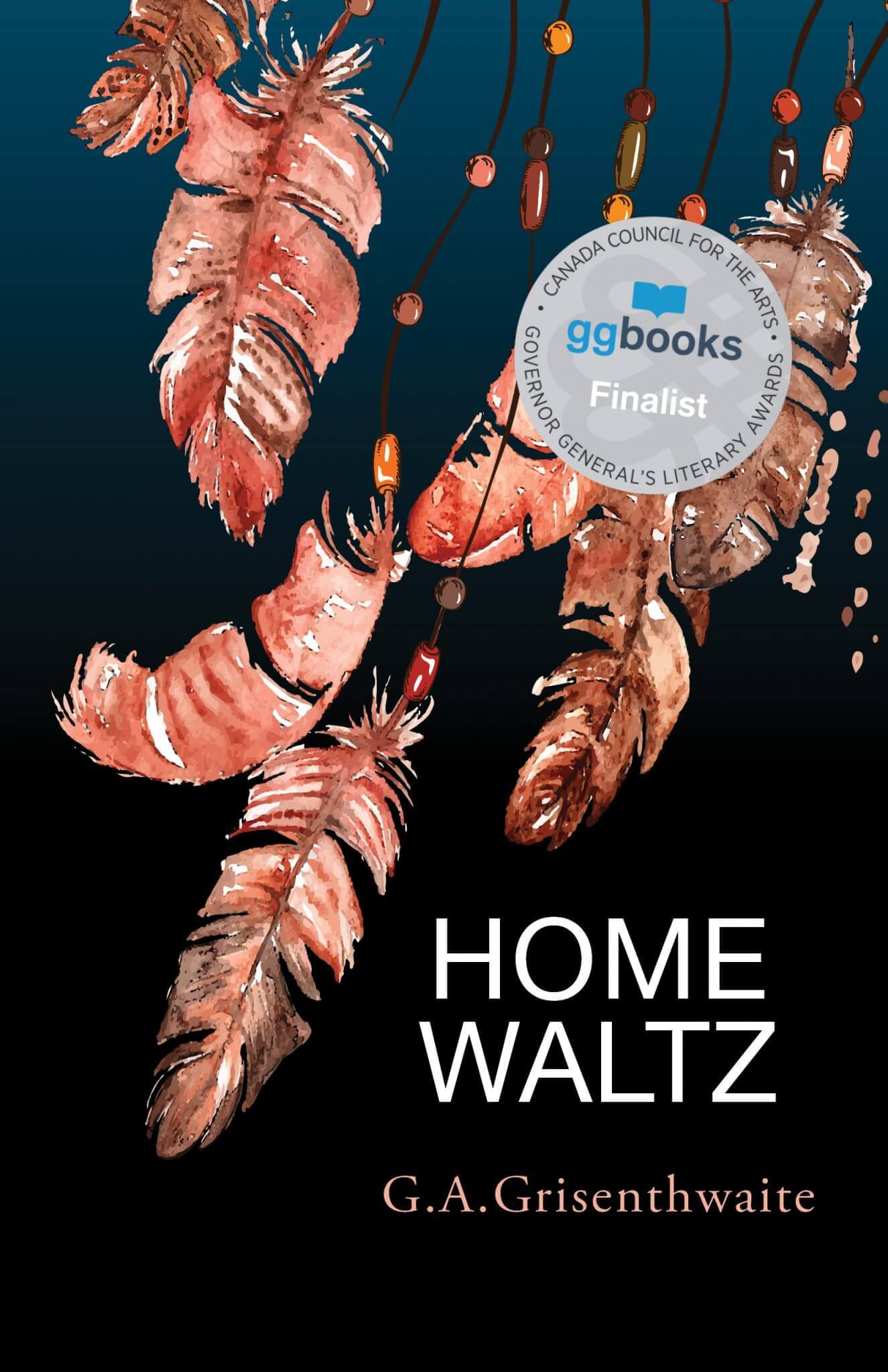By Crystal Mackenzie
Home Waltz
by G.A Grisenthwaite
Palimpsest Press (2020)
Set in 1973, in a town near Kamloops B.C, Home Waltz by G.A Grisenthwaite is a typical coming of age story with a not so typical twist. The story revolves around fifteen-year-old Squinto (Bob) and his 4 friends: Skinny, Jim Jim, Cody, and Bimbo—friends being a very loose term to describe this group of misfits. What we have here are a group of boys mostly together because they’re all they’ve got. They have grown apart; they just haven’t said good-bye. The first three are tied by the familial, cultural, and experiential but Bimbo is not part of the indigenous community and also from a family that moved to town when he was young; so he’s not really a local and even more outside than the world of his friends. There is teasing and then there is I-hate-you-and-you-know-it-but-you-won’t-leave-me kind of teasing, which is often woven with a thick thread of I’m-hurting-but-don’t-understand-the-complexities-of-why-it-hurts kind of teasing. It’s all there for this group. Bimbo, so desperate to be accepted, tolerates an intolerable amount of verbal abuse from the other boys. Squinto, for his part, is second in line on the punching bag scale, joins in because if it’s Bimbo, then it’s not him. Squinto describes Bimbo as “his worst friend” and his distaste for him is no secret, though it is misplaced as much as it is well-placed. Nothing is simple. And on the surface, this is the tale: A group of teenage boys trying to make it to the dance of the year without being picked up by the cops, running out of booze or money, and maybe getting laid. It is The Outsiders, The Wanderers, “The boys the boys” (“The Montague Boys” by Justin Warfield), the weekend that will change their lives and set the pace for who they will become. If only they knew how true that really was.
They are not loners. They have other friends and family. Community. This group of boys offers a glimpse into the complexities of being a native youth in a colonial system, deeply entwined within it and an outsider from it. In their softer moments the boys are endearing with the appropriate fear and respect of their local waitress at the diner, their singing group they are all so proud of, and Squinto, a boy who wants to see his favourite band and have his first home waltz, a very simple request for a young man. But here’s the twist, Squinto is both too old for his age and just a child at the same time. He harbours a responsibility that he barely understands. He is not alone on this journey; his cousin, Erica, who took her own life when he was nine, is with him. She interrupts his “hot” dreams, reminding him to stay grounded, pay attention. Things are not always as they seem. Stay vigilant. Remember those who have gone before you. Remember those who are still there. He is guilt ridden because he was the last to see her alive. He believed her lie—going to meet her boyfriend, a picnic—and why not? He was just a kid and didn’t know there was a reason to not believe her. How could he be held responsible? I only wish Erica played a larger role in Squinto’s journey on the page. There is a perfect moment when she tells Squito to “stop haunting [her] death” when the reader understands the full circle of grief, love, and realizing there are some things we just have to accept and let be in the world. This moment is bursting with possibility.
Grisenthwaite weaves the classic coming-of-age tale into a story of deep grief and longing for place, the unfair treatment of First Nations people, but also the heart and kinship of First Nation’s communities. The nuances of being native, being young, being part of both an indigenous community and a Town in the interior B.C (or anywhere, really). The messy love and the cycle of pain, the fun and the fears. Squinto swears to Erica he will never let another friend die like her on his watch. He has a lot to learn. The road to healing is not linear, and sometimes it feels like the cycle has no off-ramp, but sometimes there is a glimpse of how to move forward; sometimes, if you’re paying attention, it comes from a late cousin teasing you in your dreams, teaching you from the spirit world, whispering from the trees.
Does Squinto get his home waltz? I guess that’s for the reader to decide. Sometimes it’s not the destination we want, but the journey, that we really need.
Crystal Mackenzie was born and raised in Calgary and has been writing for over twenty years. She studied creative writing in both fiction and poetry at Mount Royal University. She has been an editor at FreeFall Magazine since 2013, taking over as Managing Editor in 2019. She writes out of her childhood home where a postcard view of downtown and the Rocky Mountains often distracts her.

